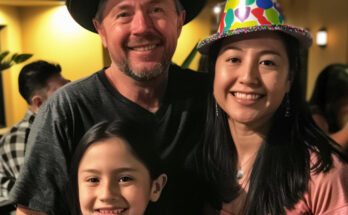Audiences were reminded of the endearing charm and beauty of EGOT-winner Rita Moreno by her 2021 documentary, “Rita Moreno: Just a Girl Who Decided to Go for It.” The film told the harrowing journey of Moreno from her humble beginnings in Puerto Rico to her role in remaking of her iconic film, “West Side Story.” Viewers followed as the thirteen-year-old actress shined as Angelina in “Skydrift” (1945) then ascended into stardom playing Dolores Guererro in “So Young, So Bad” (1950). From that point, Moreno went on to earn almost every award, including the Presidential Medal of Freedom, despite facing continued discrimination as a Latina actress.
In the documentary, a cast of celebrities outlined what Moreno meant to them as actors and what she meant to audiences at home. The trailer for the doc opened with the undeniable statement, “She comes with history. Emmy. Grammy. Oscar and Tony.” While Moreno may not be as recognizable to younger audiences in her Old Hollywood roles, they’re surely familiar with some piece of her decades-long career. If they haven’t seen her on screen, perhaps they’ve noticed Moreno at any of her numerous award ceremonies.
However, even more important than that glittering recognition was the effect Moreno had on her contemporaries and the younger members of Hollywood. Throughout “Just a Girl,” friends and fellow stars, like Eva Longoria, Morgan Freeman, and Justina Machado, were impressed by the impact Moreno’s career had on them. Paraphrasing a compliment once paid to her by President Obama, one remarked, “some people might see Rita Moreno as the embodiment of the American Dream.”
 Rita Moreno (1952), (Keystone/Hulton Archive/Getty Images)
Rita Moreno (1952), (Keystone/Hulton Archive/Getty Images)
Lin-Manuel Miranda, of “Hamilton” fame, who executive produced the film, described looking up to the actress as a young Latino. “If we thought there was no place for us, in this world of the arts that we wanted to get into, we could look up and see Rita.” He continued on the motivation so many drew from her, saying, “she could do it.” In homage, Miranda crafted “Just a Girl” alongside Norman Lear, who had worked with Moreno on “One Day at a Time.”
Others chimed in on how much Moreno’s presence in Hollywood gave them the strength to continue their own careers, shaping themselves in her image. Cuban-American singer and actress, Gloria Estefan stated, “I was really drawn to her and she made me feel like a woman could do anything because she did. She was a Latina like me.” Although Moreno’s career was largely defined by her 1961 role as Puerto-Rican love interest Anita in “West Side Story” and she was typecast in its wake, her portrayal also clearly served as a beacon for Moreno’s community.
In a piece of news footage, a darling Moreno is asked while on the red carpet, “West Side Story seems to be the big one– what are you going to do for an encore now?” She smiled, undeterred, and simply stated, “It’s hard to follow.” Despite the challenge, Moreno went go on to expertly craft one of the most illustrious and far-spanning careers in Hollywood, on Broadway, on stage, on the silver screen, and on television today.
 Rita Moreno (1984), (Ron Galella/Ron Galella Collection via Getty Images)
Rita Moreno (1984), (Ron Galella/Ron Galella Collection via Getty Images)
The actress proved repeatedly over the past few decades that she was so much more than the “Little Puerto Rican girl who nobody thought much of,” namely by landing “at MGM with a contract,” an unforeseeable feat for a young, Latina actress at the time.
However, actress Mitzi Gaynor went to describe how, “when you’re in a contract to a studio, they own you.” Moreno and her career suffered due to rampant misogyny and racism. This environment led to Moreno being undervalued, mistreated, and typecast. She commented on her role in films like, “The King and I,” (1956) where she played the subservient Tuptim, saying, “I really was, very often, treated like a sex object.”
Actress Whoopi Goldberg also commented on the struggles of being a woman, particularly a woman of color, in the film industry. She stated, “We always have to prove we’re worthwhile. That’s a lot of work.” However, Moreno is described as being “full of you-know-what and vinegar,” and proved to be an unflappable force on screen. As the audience is shown scenes from the TV series, “Oz,” in which Moreno played Sister Peter Marie Reimondo, another admirerer commented how “she just brings such authority and such honesty to whatever she’s playing.”
Moreno was able to persevere, finding pride in her identity despite her treatment in the industry. In another clip, a young Moreno with a baby balanced on one hip and a clenched fist raised, stated, “Wear your nationality like a flag, be proud of it, be proud you’re Puerto Rican.”



